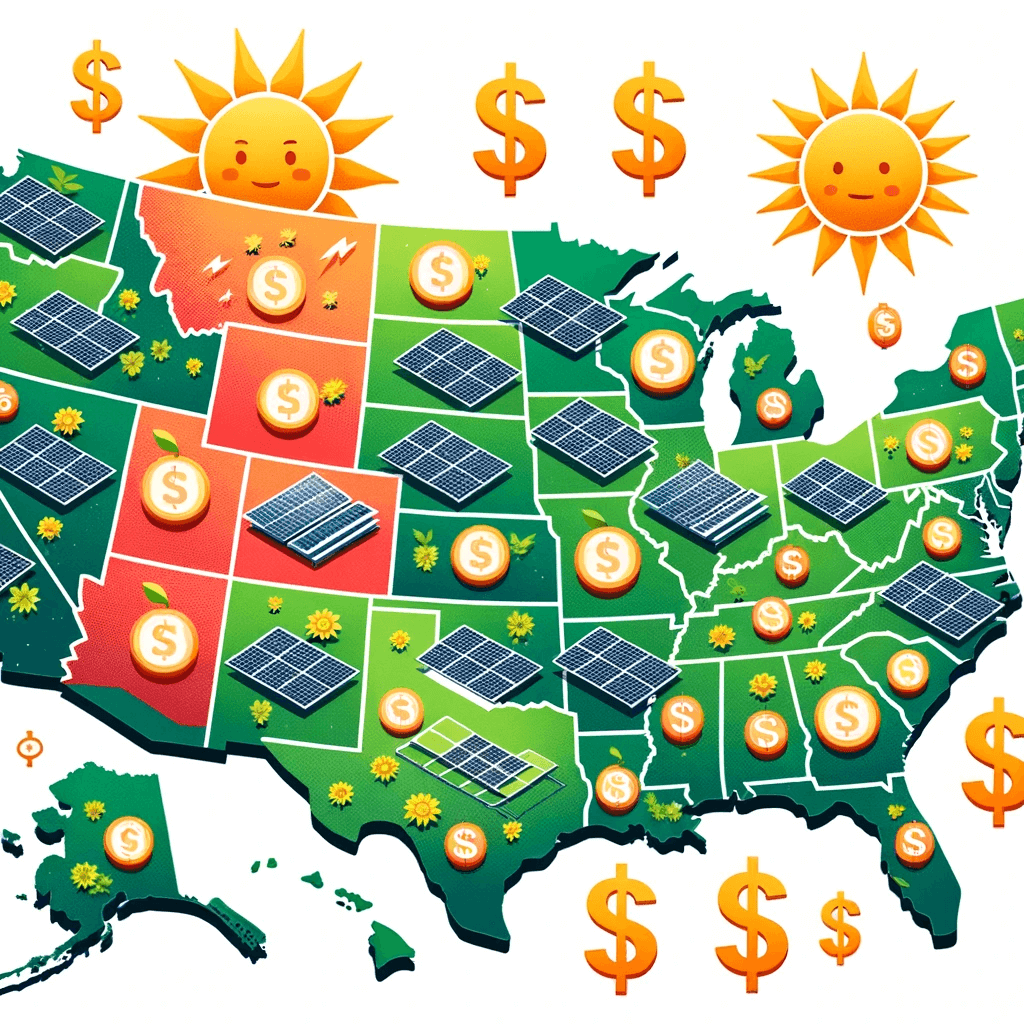Home Solar: Property Values, Energy Bills, and Government Incentives
Introduction
In the dynamic realm of residential energy solutions, home solar systems stand as a beacon of innovation, offering a trifecta of benefits that go beyond powering your home. In this enlightening blog post, we delve into the symbiotic relationship between home solar, property values, energy bill savings, and government incentives. Prepare to embark on a journey through the lucrative world of solar energy and its far-reaching impacts on homeowners and communities.
Elevating Property Values with Solar
Solar Power and Home Value Connection: Embracing solar power isn't just about environmental responsibility; it's also a savvy financial move. Studies have shown a clear correlation between solar installations and increased property values.
Positive Home Appraisals: Solar-equipped homes are often appraised higher than their non-solar counterparts due to the added value of energy efficiency and reduced operating costs.
Enhanced Market Appeal: In a competitive real estate market, solar-powered homes tend to attract more attention from potential buyers, offering a unique selling point that can speed up sales.
Illuminating Energy Bill Savings
Dramatic Reduction in Energy Bills: One of the most immediate and tangible benefits of home solar is the substantial decrease in energy bills. Solar panels harness sunlight to generate electricity, offsetting the need for grid power.
Net Metering Advantages: Net metering programs allow homeowners to sell excess solar-generated energy back to the grid, translating into credits on their energy bills and further amplifying savings.
Long-Term Financial Gain: While solar system installation involves upfront costs, the long-term energy bill savings often outweigh the initial investment, leading to significant financial gains over the system's lifespan.
Capitalizing on Government Incentives
Federal Solar Investment Tax Credit (ITC): The federal government offers a solar investment tax credit that enables homeowners to deduct a percentage of their solar system installation costs from their federal taxes. This incentive significantly reduces the financial burden of going solar.
State and Local Incentives: Many states and localities provide additional incentives such as rebates, grants, and property tax exemptions, further sweetening the deal for homeowners considering solar installations.
Energy Efficiency Programs: Some regions offer energy efficiency programs that promote solar adoption through various incentives, including direct cash rebates or low-interest loans.
The Power of the Solar Synergy
Maximizing the Trifecta: When home solar, property values, energy bill savings, and government incentives converge, homeowners can enjoy a holistic and rewarding experience that enhances both their living environment and their financial well-being.
Considering the Solar Shift
Home Assessment: Assess your home's solar potential, considering factors like sunlight exposure, shading, and roof orientation.
Financial Planning: Explore the financial aspects of going solar, including upfront costs, potential savings, and available incentives.
Government Incentives Research: Investigate federal, state, and local incentives to maximize your savings and ROI.
Conclusion: Illuminating a New Era of Residential Energy
The fusion of home solar, increased property values, energy bill savings, and government incentives has given rise to a transformative era in residential energy. Embracing solar power is not just about harnessing the sun's energy—it's about harnessing the power to build a brighter and more prosperous future.
Related Articles
Disclaimer
This blog post is intended for informational purposes only and does not constitute financial, tax, or legal advice. Consult with professionals before making decisions related to solar installations, property values, and financial investments.
Sources:
Sandia National Laboratories. (2022). Appraising into the Sun: Six-State Solar Home Paired-Sales Analysis.
Solar Energy Industries Association. (2022). Solar Investment Tax Credit (ITC).
U.S. Department of Energy. (2022). Database of State Incentives for Renewables & Efficiency (DSIRE).






